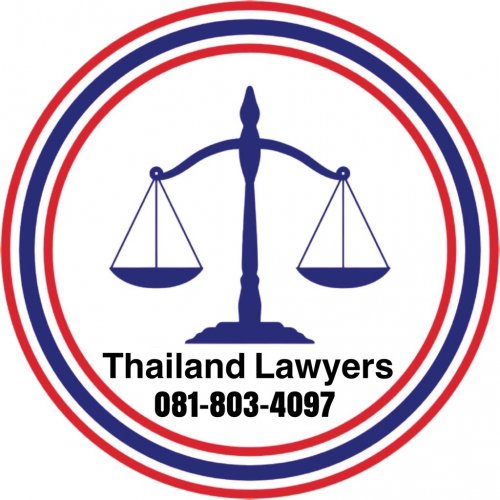Best Divorce & Separation Lawyers in Pattaya
Share your needs with us, get contacted by law firms.
Free. Takes 2 min.
Free Guide to Hiring a Family Lawyer
List of the best lawyers in Pattaya, Thailand
Thailand Divorce & Separation Legal Questions answered by Lawyers
Browse our 10 legal questions about Divorce & Separation in Thailand and read the lawyer answers, or ask your own questions for free.
- Divorce document
- Hi I need a simple uncontested divorce settlement agreement written up. It's very simple 1. I keep my condo 100 percent as was pre marital. 2. She can live my condo rent and maintenance free for two years from date of divorce. 3. We don't owe each other any money.... Read more →
-
Lawyer answer by KSN Bangkok Co., Ltd.
Hi, we can certainly assist you with drafting a simple uncontested divorce settlement agreement, based on the terms you’ve outlined. Our fee for this service starts from THB 20,000, depending on the complexity and any additional legal details that may...
Read full answer - Moving out of the house before a divorce trial
- Can I move out of my wife's house before a divorce trial ?
-
Lawyer answer by GPS Legal
GPS Legal has extensive experience in Family Law and matters of divorce. While we would want to better understand the details behind the question, the basic answer is yes you can move out of your wife’s house before a divorce...
Read full answer - Divorce
- Can I divorce my Thai wife without her help,it's uncontested,no claims
-
Lawyer answer by Mahanakorn Partners Group Co., Ltd
Dear Sir,Thank you for reaching out to us with your inquiry regarding divorce in Thailand. We appreciate your trust in our expertise, and we would be delighted to assist you on the matter.In Thailand, uncontested divorces, where both parties are...
Read full answer
Thailand Divorce & Separation Legal Articles
Browse our 3 legal articles about Divorce & Separation in Thailand written by expert lawyers.
- How to Protect Your Property After Going Through a Divorce in Thailand
- Understanding how to protect your assets and the laws surrounding divorce is vital as a foreigner in Thailand because in the event of a separation from your Thai spouse, you are going in at a disadvantage. Thai law typically favors Thai nationals over foreigners, so having the right knowledge and... Read more →
- How To Get Divorced In Thailand
- Divorce is a major legal process in Thailand comprising several steps. It requires meticulous documentation and adherence to strict laws and often involves complex grounds.There are two types of divorce in Thailand: uncontested and contested divorce.What is an Uncontested Divorce?An uncontested divorce is also known as an “administrative divorce.” This... Read more →
- How to Find a Divorce Lawyer in Thailand
- Divorce is a difficult and emotionally taxing procedure that may be made even more difficult when it takes place abroad, such as may be the case in Thailand. Anyone may feel overwhelmed by the legal complexities, cultural variances, and other divorce-related issues. But with the right assistance, you may locate... Read more →
About Divorce & Separation Law in Pattaya, Thailand
Divorce and separation in Pattaya, Thailand, follow specific legal procedures that conform to Thai Family Law. As popular as a marriage destination, Pattaya also serves as a venue for numerous divorce cases. Thai law recognizes both contested and uncontested divorces, each with its own legal requirements and implications. Typically, the process can involve intricate legal discussions, especially when property division, child custody, and spousal support are involved. Understanding the local nuances is essential for both Thai citizens and foreigners who might find themselves navigating these legal waters in Pattaya.
Why You May Need a Lawyer
Engaging a lawyer in divorce and separation matters often proves beneficial for a variety of reasons. Whether you're facing a contested divorce with disputes over assets or an amicable separation, legal assistance can guide you through paperwork, ensure your rights are upheld, and help negotiate fair settlements. Specific situations calling for professional legal help include complicated asset division, child custody negotiations, international divorce scenarios, cases involving domestic abuse, or when one party lacks knowledge of the Thai legal system. Professional legal advice helps ensure that the process is as smooth and fair as possible.
Local Laws Overview
Pattaya, like the rest of Thailand, adheres to Thai Family Law, a critical component of the civil law system. This includes grounds for divorce such as adultery, abandonment, imprisonment, and physical or mental abuse. Key aspects of Thai Family Law relevant to Pattaya include:
- Acknowledgment of both mutual consent divorces, which require minimal court involvement, and contested divorces, which can be more prolonged and complex.
- Property division, where Thai law typically divides marital assets equally unless stipulated otherwise in a prenuptial agreement.
- Child custody decisions, made in the best interest of the child, often granting joint custody but allowing one parent to be the primary caretaker.
- Alimony or spousal support considerations, although not common, can be negotiated or ordered based on both parties' circumstances.
Frequently Asked Questions
What are the grounds for divorce in Thailand?
Thai law recognizes various grounds for divorce, including mutual consent, adultery, cruelty, desertion, and imprisonment, among others.
Can foreigners file for divorce in Thailand?
Yes, foreigners can file for divorce in Thailand. However, at least one party must meet residency requirements, such as having previously resided in Thailand for a particular timeframe.
What is the process for an uncontested divorce?
Uncontested divorces can be filed at the local District Office, provided both parties agree on all terms, including asset division and child custody.
How are marital assets divided in a Thai divorce?
Marital assets are generally divided equally unless specified otherwise by a prenuptial agreement. Personal property owned before marriage is not included.
What factors influence child custody decisions?
Child custody is governed by the child's best interests, considering factors like the child's age, emotional ties, and each parent's ability to provide care.
Can partners negotiate terms without going to court?
Yes, partners can negotiate terms through mediation or mutual agreement and submit them for court approval, making the process smoother and less contentious.
Do I need a prenuptial agreement?
While not mandatory, a prenuptial agreement can clarify asset distribution and other matters should a divorce occur, providing security for both parties.
Is alimony common in Thai divorces?
Alimony is not common and is usually based on negotiations or specific court orders, considering factors such as the length of the marriage and each party's financial status.
How long does the divorce process take?
The length of the process varies: uncontested divorces can be resolved relatively quickly, while contested divorces may take longer due to legal proceedings.
What should I know about international divorce in Thailand?
In international divorces, it is essential to understand how Thai law intersects with international law, especially regarding jurisdiction, documentation, and enforcement of divorce decrees.
Additional Resources
For further assistance, consider reaching out to the following resources:
- The Thai Ministry of Justice, providing access to legal information and resources.
- The Pattaya Family Court, a legal body that oversees family law cases.
- Local legal aid organizations offering support and counseling for individuals navigating divorce and separation.
- Thai-based law firms specializing in family law and providing consultation for both Thai residents and foreigners.
Next Steps
If you need legal assistance in Divorce & Separation in Pattaya, start with a consultation from a reputable family law attorney. Gather all necessary documents, such as marriage certificates, evidence of assets, and prior legal agreements. Reach out to local legal aid centers if you need help accessing legal services. Consider exploring out-of-court settlements through mediation, which can be a less adversarial and more cost-effective approach. Ensure that you understand your rights and obligations under Thai law for a comprehensive approach to your legal situation.
Lawzana helps you find the best lawyers and law firms in Pattaya through a curated and pre-screened list of qualified legal professionals. Our platform offers rankings and detailed profiles of attorneys and law firms, allowing you to compare based on practice areas, including Divorce & Separation, experience, and client feedback.
Each profile includes a description of the firm's areas of practice, client reviews, team members and partners, year of establishment, spoken languages, office locations, contact information, social media presence, and any published articles or resources. Most firms on our platform speak English and are experienced in both local and international legal matters.
Get a quote from top-rated law firms in Pattaya, Thailand — quickly, securely, and without unnecessary hassle.
Disclaimer:
The information provided on this page is for general informational purposes only and does not constitute legal advice. While we strive to ensure the accuracy and relevance of the content, legal information may change over time, and interpretations of the law can vary. You should always consult with a qualified legal professional for advice specific to your situation.
We disclaim all liability for actions taken or not taken based on the content of this page. If you believe any information is incorrect or outdated, please contact us, and we will review and update it where appropriate.

















